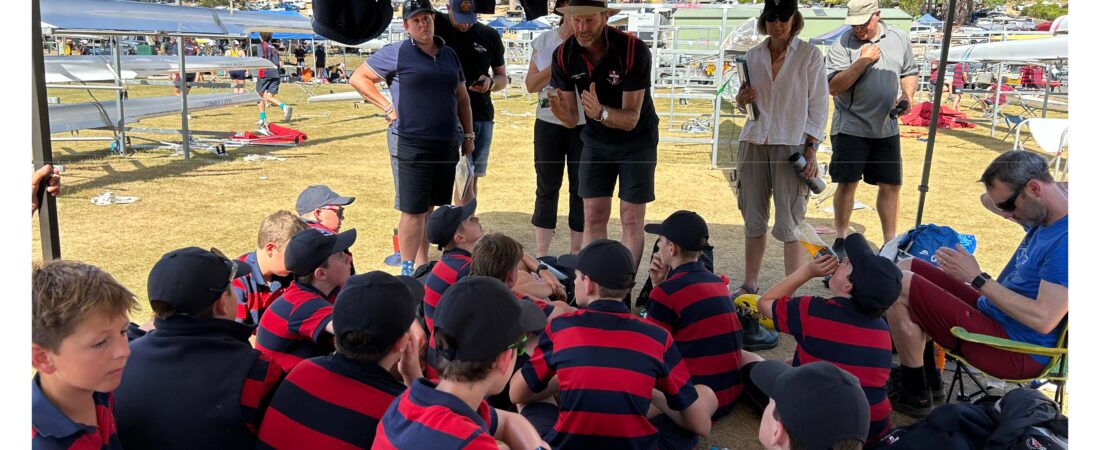Anthony Edwards – Staff Member & 5 x Olympic Athlete
Posted on July 29, 2024
How would it feel to be an athlete in Paris right now? And what can such an intense experience bring to the rest of a person’s life? The Friends’ School Head of Rowing Anthony Edwards – a three-times Olympic medallist who represented Australia in five different Olympic Games – shares his thoughts.
As told to Alison Boleyn – The Friends’ School Alumni Content Assistant

What do you suppose the athletes at the 2024 Paris Olympics are feeling?
I’ve been thinking about them in the days before the opening ceremony, walking into the Olympic village, going to their rooms, getting the three or four bags of Olympic clothing and the excitement of trying all that on. They’d be working out who’s who and bumping into athletes from other countries who are amazing people. There’s so much excitement around them. Then comes the time to concentrate on what they’re there to do.
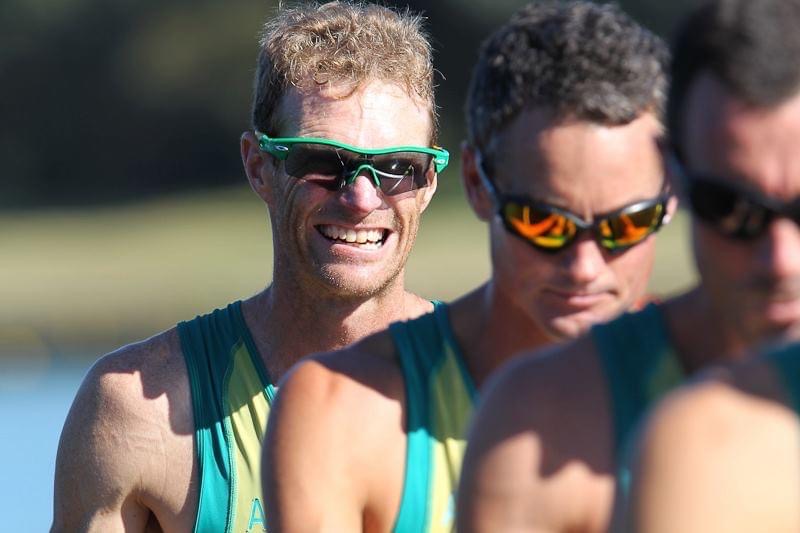
When you went to your first Olympics in Atlanta in 1996 [Anthony raced the lightweight double scull to a bronze], did any of your training prepare you for the scrutiny of a world stage?
Mental preparation is one of the most important things that sport can teach. In the buildup to ’96, we did a lot of mental rehearsal, almost daily, practising every possible scenario for race day. It’s the what-if’s – variations in weather and race conditions, something going wrong with the boat – so that if anything did happen, we were ready. In 1996 in Atlanta, there was a bomb in Centennial Olympic Park [a terrorist attacked a public event during the Games]. We were woken at 4 a.m. and told to evacuate. That was something we never visualised. But we were trained to stay calm in high-anxiety situations and think: “How do we deal with this in a controlled capacity?” I’ve used this all through my life.

When you look back over five Olympic Games, what are your strongest memories?
Sitting on the starting line at the 2000 Sydney Olympics [with the lightweight coxless four] was probably one of the most stressful moments. Whereas four years later, sitting on the starting line at Athens, for the same event, is one of my happiest memories. In Sydney the anticipation was overwhelming. We were the crew favoured to win gold for Australia; all eyes were on us and the pressure was enormous. The day before the Olympic final, I visualised the race in my mind a thousand times; sometimes I stopped breathing, it was that intense. So, on the starting line, my controlled breathing was key to dealing with this moment and to enable a good start. I remember when I crossed the line – and we went down by 0.41 of a second to the French; we were leading, literally with five strokes to go – my first reaction was, I don’t know whether we’ve won gold or silver but thank God it’s done.
At Athens, I decided I was going to enjoy the experience. When I sat on the starting line, I had a moment to reflect on where I was and what I was doing and I had an appreciation of being there. I looked across at the competitors; either Eskild Ebbesen from Denmark or I would become one of the greatest athletes in lightweight rowing in the world. Denmark won gold. We won silver. Yet sitting on that starting line is my favourite memory from Olympic competition.

How would you encourage athletes to frame their wins and disappointments?
Probably my biggest advice to an athlete, or someone striving to be an elite athlete, is around the element of selfishness. Competing at that level requires self-absorption and self-belief. But if you can try to be a little more selfless, and consider others beyond your bubble, this will help you be a whole person beyond competition. That inner circle of family, teammates, coach and staff are making you who you are right now. But to be a good person, you need to be thinking of friends and the connectors and the people who got you there in the first place.
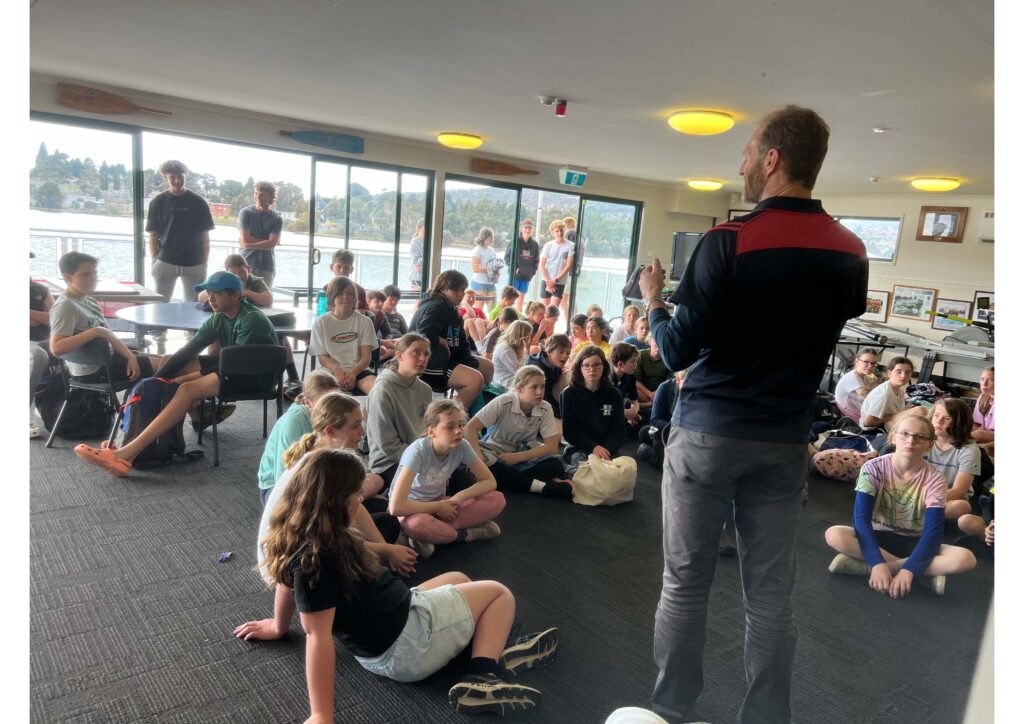
You competed at the top end for 20 years. Did you train differently as time passed?
I was 22 in ’96. Compare that to 2012: I was 39, married [to wife Felicity] with two children [Alannah and Hamish, both at Friends’] and a mortgage. In the early part of my career, I was known for my strength and power. Towards the 2012 London Olympics, I wasn’t necessarily that anymore. I was a different athlete with vast experience and technical knowledge and, in some ways, I became a support to the coach.
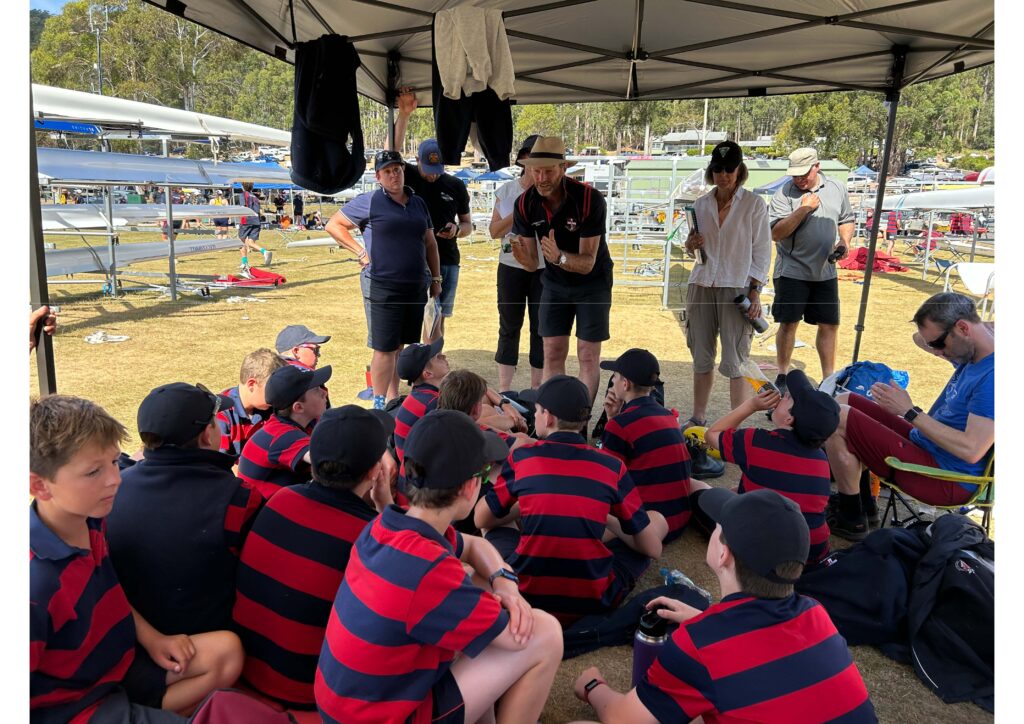
What have you kept from the practice of elite competition and what have you let go?
It’s taken me many, many years to let go of being an elite athlete. To look in the mirror and say “I’m not that person anymore” is really hard. One way of coming out of it is elite coaching. [Anthony has worked as a State Development Officer with Rowing Tasmania, then as an Elite Coach with the Tasmanian Institute of Sport, including involvement with Sarah Hawe, who’s competing in the Women’s Eight in Paris.] But going to the 2016 Rio Olympics with my family – sitting on the sidelines, in the stands, catching the trains – was a really fun and important thing to do to feel comfortable in who I am. Then I managed the Relay for Life event for Cancer Council Tasmania [2016–2020]. It was such a real and incredible experience to meet the people dealing with cancer. It brings you back to earth.
About six months into that job, I went for a row one Saturday morning, pushing off at New Norfolk. About two kilometres down the river I realised I was smiling – I couldn’t believe how much fun I was having. In that moment I realised: I just love being on the water. Simple as that. It took all those years to realise, yet because I am a competitive soul I’d always viewed rowing in terms of performance with a drive to achievements.
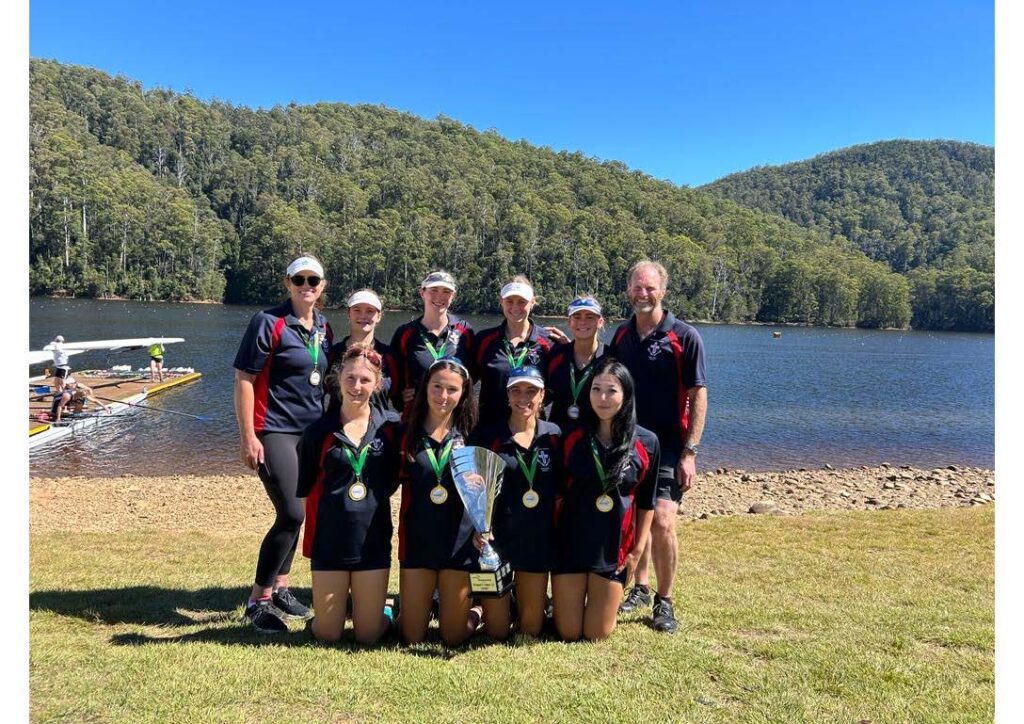
After years of working with elite athletes, is it hard working with children, and all their different levels of ability and dedication?
At elite level, I coached the way I was taught. I taught the technical stroke. You need the power. You need the speed. Then there’s the element of endurance. But I started coaching Year 7 girls one day when I dropped my daughter off at rowing at Friends’. I put my head in the door and said, “Do you need a hand?” The next year, when the School’s rowing director left, I felt it was time to come back to this sport I love, yet to be around people where I could give the most impact. Of course we teach the students to row and to strive and be their best. But ultimately my focus is how we can build them to become strong individuals.
Years 7 and 8, you keep it simple: fun, enjoyment, connections. Year 9s are more challenging; there’s a lot of variation in individual growth. Then with Years 10, 11 and 12 you begin to connect at another level as they learn more around teamwork, self confidence and understanding themselves around other people. But whatever their age I tell them, “This is your boatshed – respect it.” Yes, they still need to do the dishes and clean up in the morning after training ends.
I’ve had an amazing experience as an elite athlete. I’m very proud of what I achieved. Why I’m here at Friends’ is to take the students on a journey, through rowing, and give them my knowledge beyond just the rowing boat – the people skills, the life skills. And hopefully, years down the track, they might look back and appreciate it.
